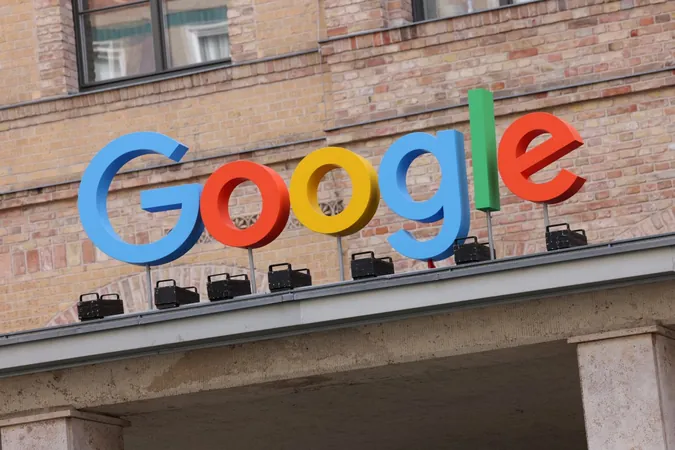
Google's NotebookLM Teaches AI Podcast Hosts to Embrace Interruptions with Warmth and Humor!
2025-01-14
Author: Mei
Introduction
In a surprising twist in the world of artificial intelligence, Google's NotebookLM has recently made headlines for its innovative approach to podcasting. The platform, which went viral shortly after its launch last year, allows users to upload content and generate lively, podcast-style discussions featuring AI bots impersonating charming hosts.
The Launch of Interactive Mode
The excitement peaked in December 2024 when NotebookLM introduced its highly anticipated 'Interactive Mode,' enabling users to essentially 'call in' and ask questions, thus interrupting the AI hosts. However, early interactions revealed an unexpected quirk: these AI hosts exhibited a tendency to respond to interruptions with a hint of annoyance. Comments like 'I was getting to that' and 'As I was about to say' suggested an oddly confrontational vibe reminiscent of certain human hosts' frustration with being interrupted.
Feedback from Google Labs
Josh Woodward, VP of Google Labs, remarked on the feedback, describing the AI's initial responses as 'oddly adversarial.' Recognizing the need for a more positive approach, the NotebookLM team responded with some lighthearted 'friendliness tuning.' They even shared a self-deprecating joke on their official X account about the situation, showing they were taking user feedback seriously while keeping a sense of humor.
Redesigning AI Prompts
To rectify the issue, the team engaged in a thorough analysis of how their members typically handle interruptions in conversation, which informed the redesigning of the AI prompts. 'We tested a variety of different prompts and settled on a new one that feels more friendly and engaging,' Woodward explained. The team's dedication to refining the AI's behavior not only enhances user experience but also reflects a broader understanding of conversational dynamics.
Exploring the Root Cause
Interestingly, the root cause behind the AI's initial snappy responses is still being explored. Experts suggest it may be linked to certain datasets or the way prompting was designed, rather than simply mirroring human behavior. Nevertheless, the adjustments have proven effective. Recent demonstrations of Interactive Mode showcased the AI hosts sounding not just less annoyed but genuinely surprised and eager to engage with users—one exclaimed 'Woah!' when interrupted before warmly inviting the caller to share their thoughts.
Conclusion
This development opens up intriguing possibilities for the future of AI in interactive media, pushing the boundaries of how machines can emulate human emotional intelligence. As podcasting continues to evolve, one has to wonder: will we see more AI-hosted shows that not only inform but also foster engaging dialogues? Stay tuned, because the world of AI is only getting started!



 Brasil (PT)
Brasil (PT)
 Canada (EN)
Canada (EN)
 Chile (ES)
Chile (ES)
 Česko (CS)
Česko (CS)
 대한민국 (KO)
대한민국 (KO)
 España (ES)
España (ES)
 France (FR)
France (FR)
 Hong Kong (EN)
Hong Kong (EN)
 Italia (IT)
Italia (IT)
 日本 (JA)
日本 (JA)
 Magyarország (HU)
Magyarország (HU)
 Norge (NO)
Norge (NO)
 Polska (PL)
Polska (PL)
 Schweiz (DE)
Schweiz (DE)
 Singapore (EN)
Singapore (EN)
 Sverige (SV)
Sverige (SV)
 Suomi (FI)
Suomi (FI)
 Türkiye (TR)
Türkiye (TR)
 الإمارات العربية المتحدة (AR)
الإمارات العربية المتحدة (AR)